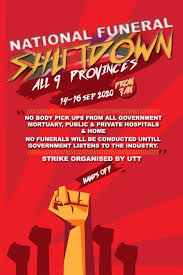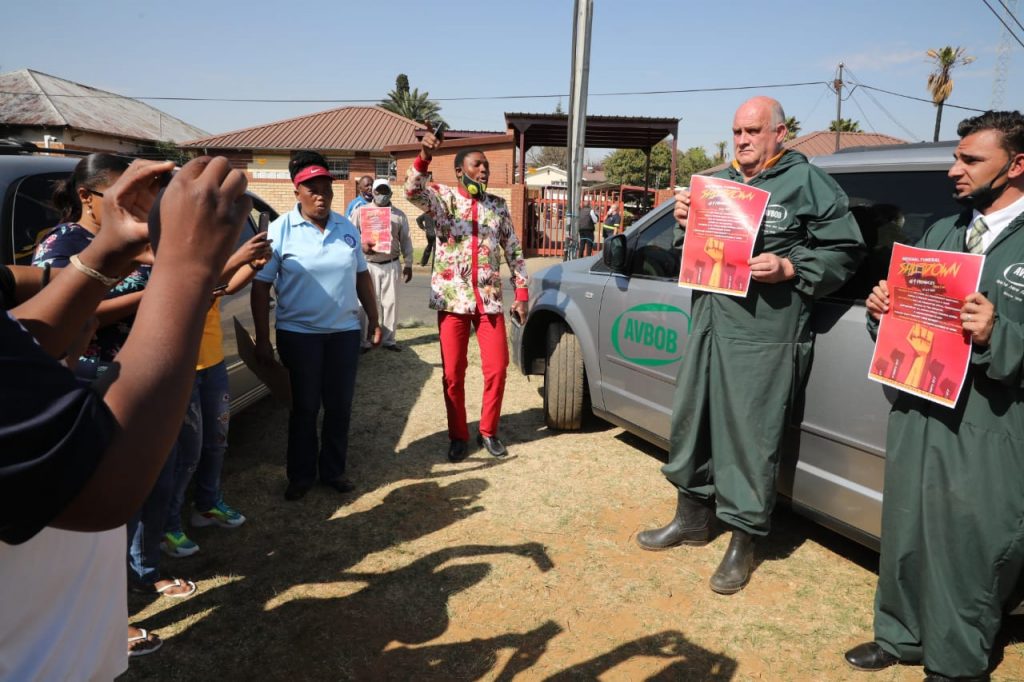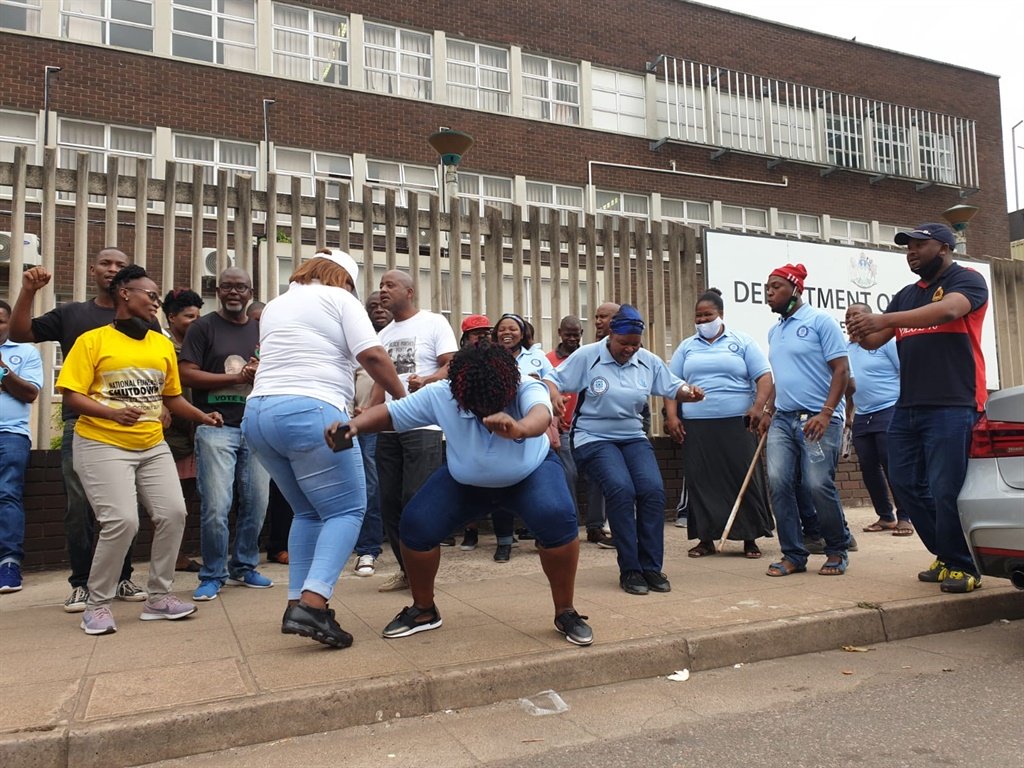South African Funeral Workers Reach Agreement After Strike
After a three-day strike, South Africa’s funeral workers came to an agreement with authorities and resumed work on September 17.
The strike, which disrupted the transportation of bodies between homes, government hospitals, and mortuaries, was organized by the Unification Task Team (UTT), a group of 17 professional associations from around the country. Thousands of undertakers protested by carrying empty caskets through city streets to shock the government into action and emphasize the role of this essential sector. Just before the strike, the association thanked South Africa’s Muslim community, which has largely supported the striking workers despite a religious rule that calls for same-day burial.

The action stemmed from grievances related to certification requirements that the UTT claims put an undue burden on small businesses and make the system inherently skewed in favor of big funeral homes. Because many small undertakers can’t afford their own storage facilities, it’s common practice for these smaller operators to rent space from larger mortuaries. Although this practice is generally accepted, some municipal governments interpret these regulations as a prohibition on off-site leasing of refrigeration facilities and use this as a reason to deny a Certificate of Competency(COC). By requiring this certificate, the UTT argues, state hospitals and agencies discriminate against small enterprises and squeeze them out of the market in favor of more established, often white-owned mortuaries.
“A white monopoly”
The undertakers allege other forms of corruption and favoritism, pointing out that only a few big funeral service companies receive commissions for state funerals and other government-funded burials. They claim that the laws, holdovers from South Africa’s apartheid regime, amount to a “white monopoly” that makes it excessively difficult for small businesses to operate. The Association’s spokesperson argues that the outsourcing of services shouldn’t prohibit undertakers from acquiring a certificate. They want loosened regulations so the sector, which has experienced extra strain during COVID-19, can manage the crisis using all available resources. They are also asking for government assistance in acquiring land to build storage facilities for small mortuaries and permits to legalize shared and off-site facilities.

After weeks of public statements and agitation, the undertakers formally went on strike on September 14th. The strike threatened to turn violent as some protesters clashed with non-striking mortuaries, forcefully advising them to close. The Department of Health agreed to sit down with UTT, but cautioned the public against using unlicensed funeral providers, citing concerns about proper tracking and the risk of communicable disease. “Family members are urged to check the legitimacy of the undertakers and agents being utilised for overall management of the burial of their loved ones to ensure proper tracking and tracing, and that the handling of the remains is done with dignity and within the law,” the Department stated.
The National Funeral Practitioners Association of South Africa(NAFUPA) supported the strike, warning that, without loosened regulations, hundreds of thousands of undertakers would lose their jobs. Like many other countries, South Africa’s funeral industry has struggled to keep up with the unprecedented demand caused by the COVID-19 pandemic.
According to the UTT, at the end of the planned three days, the Department agreed to their demands. To address the undertakers’ concerns, the government will prohibit requests for a COC, allow the building of bulk storage facilities, and permit the outsourcing of storage by small mortuaries to accredited facilities. The final details of revisions to the law are still being worked out, but the UTT is meeting with government officials and has expressed confidence that the parties will come to a satisfactory agreement. For its part, the government maintains that it will continue to enforce health and safety regulations and ensure consumer protection.




